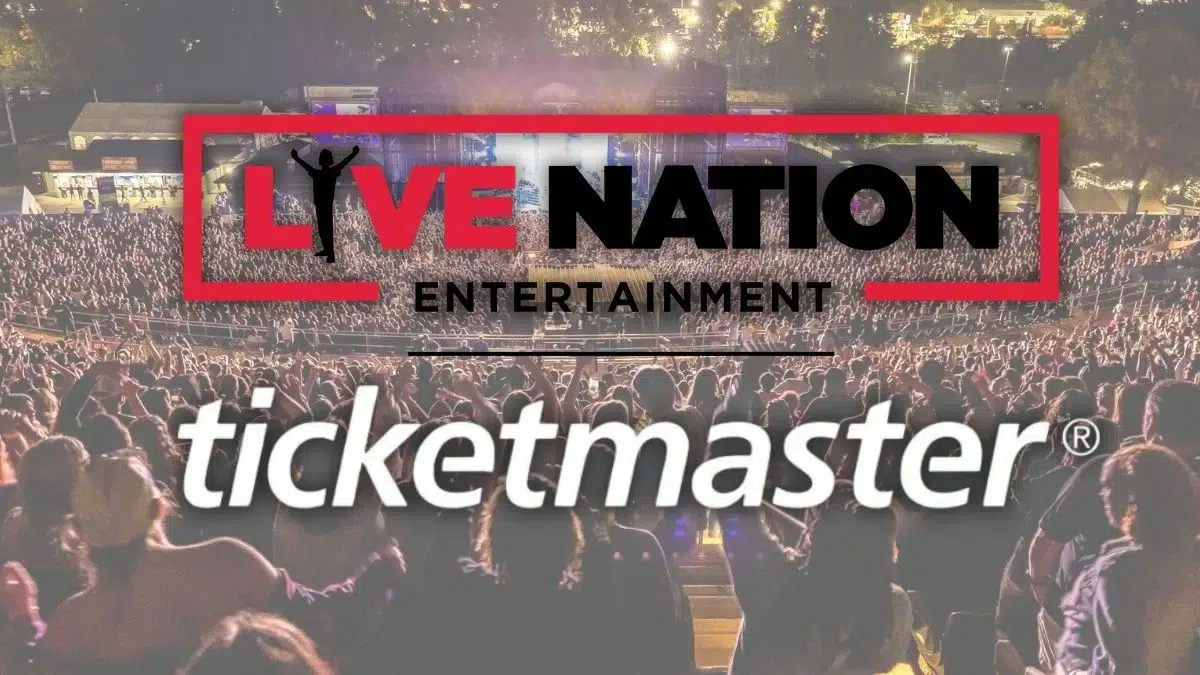Company says new policies aim to “protect artists and fans” as it pushes back on federal antitrust claims
Ticketmaster plans to implement sweeping changes to its ticket resale operations — including shutting down its TradeDesk platform for concert tickets and banning users from maintaining multiple accounts — as the company faces intense legal and political scrutiny from federal regulators.
The moves were revealed in a detailed October 17 letter from Live Nation executive vice president and chief regulatory counsel Dan Wall to U.S. Senators Marsha Blackburn (R-Tenn.) and Ben Ray Luján (D-N.M.). The correspondence was a response to questions raised after the Federal Trade Commission and seven state attorneys general filed suit against Ticketmaster and parent company Live Nation last month, alleging anti-competitive practices and violations of the federal BOTS Act.
READ MORE: Senators Demand Answers in Wake of FTC Lawsuit
Wall’s letter, obtained by Billboard, strongly disputes the government’s claims, calling them “a distorted view of the facts and the law.” He argues that Ticketmaster — not its rivals — has done “more than anyone else in the industry to fight the bad actors” that exploit the ticketing ecosystem.
Under the new policy, Ticketmaster says it will limit all individuals and entities, including professional resellers, to a single verified account tied to a unique taxpayer ID. Accounts that appear duplicative or fraudulent will be canceled, with new AI-based identity verification tools deployed to detect circumvention. The company also plans to require brokers to provide their Social Security numbers in order to sell tickets through its resale marketplace.
TradeDesk to Be Retired
The company will also retire its controversial TradeDesk system, an inventory management tool used by professional sellers to upload and manage listings. Regulators had alleged that the platform enabled large-scale ticket harvesting, but Wall rejected that characterization as “plainly false,” describing TradeDesk as a logistical utility similar to StubHub’s TicketUtils, Vivid Seats’ SkyBox, or TicketNetwork’s POSNext.
Still, Live Nation says it will remove TradeDesk’s concert ticket functionality to avoid “reputational harm,” even while acknowledging that brokers will likely migrate to alternative third-party systems.
Reframing the FTC Case
At the heart of the legal fight is how the government interprets the Better Online Ticket Sales (BOTS) Act, a 2016 law intended to curb automated ticket-buying. The FTC contends Ticketmaster facilitated brokers’ circumvention of ticket limits through multiple accounts. Wall argues the agency is misapplying the statute, insisting it was designed to target the use of technological tools — not human behavior or legacy industry practices.
“The FTC’s case is based on a fundamentally novel and expansionist view of the BOTS Act,” Wall wrote. He also accused the commission of taking internal company emails out of context to build its narrative, and reiterated that resale revenue represents less than 2% of Live Nation’s total income — undermining the argument that the company profits from resale activity.
Emphasizing Anti-Bot Efforts
The letter highlights Ticketmaster’s ongoing investments in anti-bot technology, which Wall claims currently blocks 200 million bots per day and 99% of 25 million daily account-creation attempts. The company also plans to expand its “post-onsale ticket sweep” tools to help artists identify and cancel fraudulent purchases.
Live Nation maintains that these steps show it is acting in good faith to address the same issues regulators have flagged. Wall urged lawmakers to focus future reforms on combating automated ticket-harvesting technology rather than penalizing legitimate ticketing companies.
A Calculated Concession
The decision to sunset TradeDesk and tighten account rules appears aimed at cooling political pressure amid a heated regulatory environment. Even if the FTC’s antitrust case struggles in court, the public narrative surrounding “collusion with scalpers” remains a reputational risk for Ticketmaster.
That said, the true nature of this public shift against its own participation in the ticket resale business must be viewed in the framework of its clear long-term plans for that space: eliminate its legal standing entirely in favor of a walled-garden system where tickets are controlled from end-to-end by the ticketing company itself.
Ticketmaster’s “FAIR” ticketing framework – being pushed at both state and federal levels by an enormous lobbying aparatus (managed by Wall himself) and with support by the “Fix The Tix” coalition dominated by mega-managers like Irving Azoff and Coran Capshaw and hundreds of artists affiliated with either them or Live Nation – is designed to make obsolete the existing framework of consumer ticket resale. Instead, such reforms would empower event promoters and management to effectively declare competing resale platforms illegal by fiat, locking tickets to their system, where they would be able to control pricing at all points of sale, harvesting fees any time a ticket changes hands.
Should that system come to fruition, companies like Live Nation/Ticketmaster wouldn’t need platforms like Trade Desk to have a peice of ticket resale – they would own 100% of it for any event ticketed on their platform by default.
In that light, the dismantling of TradeDesk and the new restrictions on account activity are less a retreat than a repositioning. By voluntarily giving up a small slice of its existing resale infrastructure, Ticketmaster strengthens the political case for its preferred “FAIR” framework — one that would consolidate control of ticket transfer and pricing under its own roof.
Critics warn that such a shift would not only sideline independent resale platforms, but also eliminate one of the few remaining consumer safeguards in the marketplace: competition. If implemented, the FAIR system could transform ticket resale from an open marketplace into a closed-loop ecosystem, where every ticket transaction is mediated — and monetized — by the same company that sells the original ticket.
For Live Nation, that represents the ultimate endgame of this fight. What began as a legal battle over bots and broker accounts may ultimately serve to cement its dominance over the entire lifecycle of a ticket — from the moment it’s issued to the moment it’s scanned at the gate.



